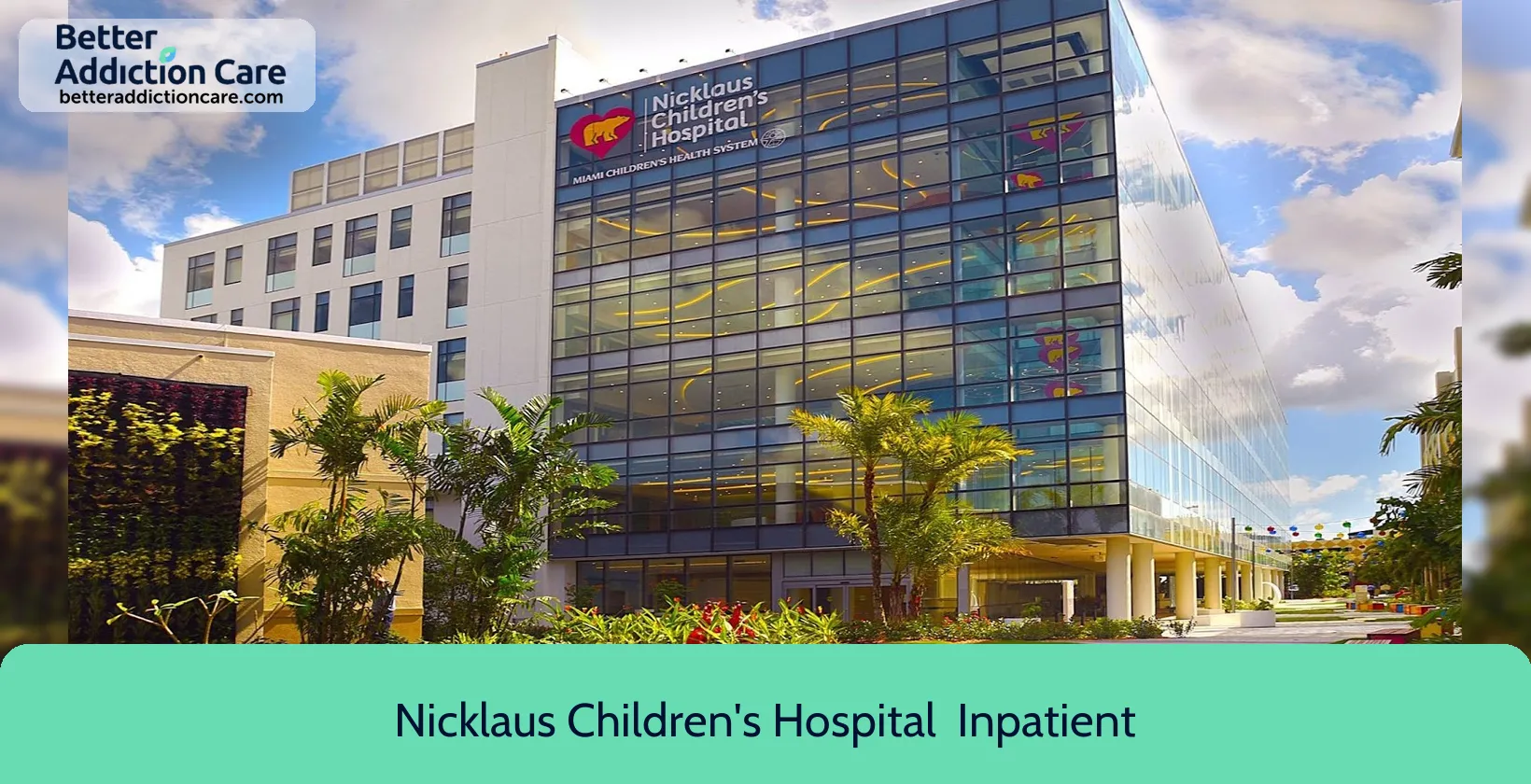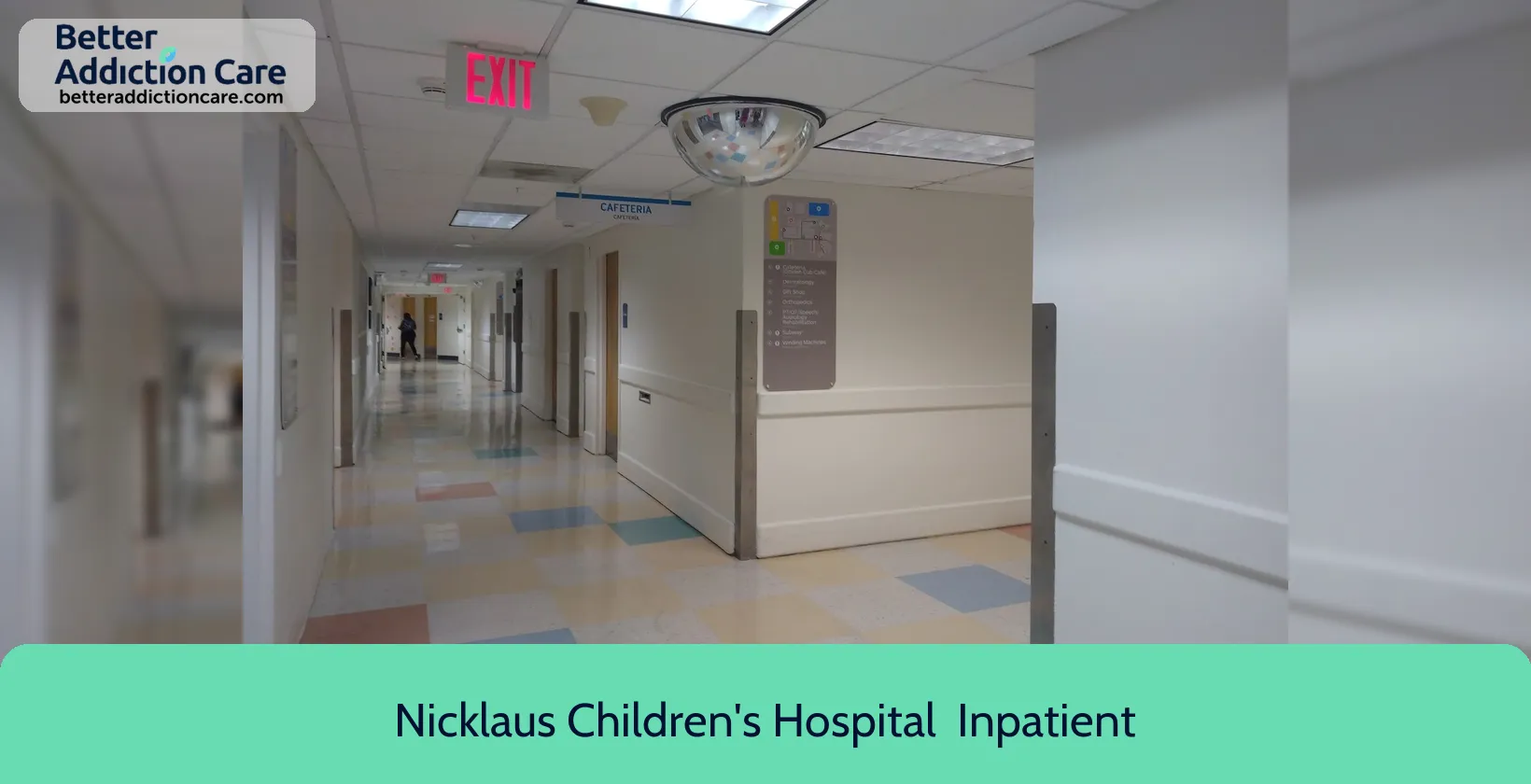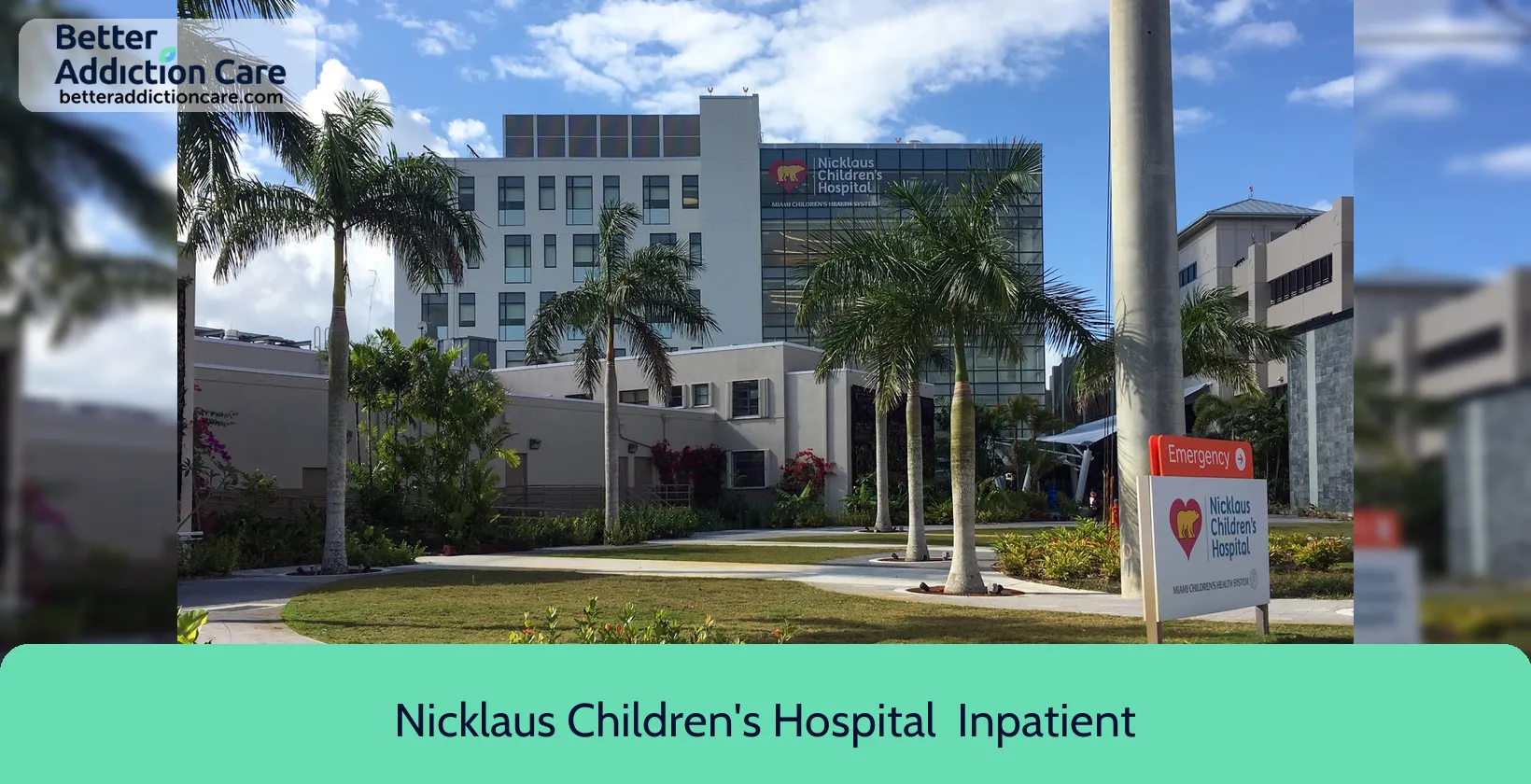Overview
Nicklaus Children's Hospital - Inpatient Psychiatry Unit is a mental health treatment center for people seeking treatment near Miami-Dade County. As part of their treatment modalities for recovery, Nicklaus Children's Hospital - Inpatient Psychiatry Unit provides couples/family therapy, group counseling, and cognitive behavioral therapy during treatment. Nicklaus Children's Hospital - Inpatient Psychiatry Unit is located in Miami, Florida, accepting cash or self-payment for treatment.
Nicklaus Children's Hospital - Inpatient Psychiatry Unit at a Glance
Payment Options
- Cash or self-payment
- Medicaid
- Medicare
- State-financed health insurance plan other than Medicaid
- Private health insurance
Assessments
- Screening for tobacco use
- Comprehensive mental health assessment
Age Groups
- Children/adolescents
Ancillary Services
- Case management service
- Diet and exercise counseling
- Education services
- Suicide prevention services
Highlights About Nicklaus Children's Hospital - Inpatient Psychiatry Unit
6.65/10
With an overall rating of 6.65/10, this facility has following balanced range of services. Alcohol Rehabilitation: 8.00/10, Drug Rehab and Detox: 6.00/10, Insurance and Payments: 6.00/10, Treatment Options: 6.61/10.-
Alcohol Rehabilitation 8.00
-
Treatment Options 6.61
-
Drug Rehab and Detox 6.00
-
Insurance and Payments 6.00
Treatment At Nicklaus Children's Hospital - Inpatient Psychiatry Unit
Treatment Conditions
- Mental health treatment
Care Levels
- Hospital inpatient/24-hour hospital inpatient
- Outpatient
Treatment Modalities
- Couples/family therapy
- Group counseling
- Cognitive behavioral therapy
- Dialectical behavior therapy
- Activity therapy
Ancillary Services
Languages
- Sign language services for the deaf and hard of hearing
- Spanish
Additional Services
- Pharmacotherapies administered during treatment
- HIV testing
Special Programs
- Children/adolescents with serious emotional disturbance (SED)
- Persons with eating disorders
- Persons 18 and older with serious mental illness (SMI)
Contact Information
Read our Most Recent Article About Drug Addiction
DISCLAIMER: The facility name, logo and brand are the property and registered trademarks of Nicklaus Children's Hospital - Inpatient Psychiatry Unit, and are being used for identification and informational purposes only. Use of these names, logos and brands shall not imply endorsement. BetterAddictionCare.com is not affiliated with or sponsored by Nicklaus Children's Hospital - Inpatient Psychiatry Unit.











